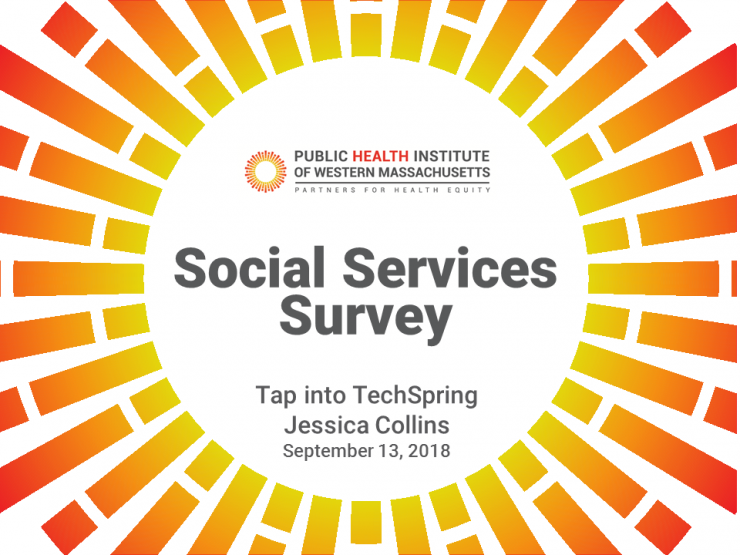Accountable Care Organizations
The Public Health Institute of Western MA convenes the regional Western MA Accountable Care Organization group. We brought these leaders together to ensure that where there were opportunities to collaborate to better serve people in our region, we would intentionally try to step out of silos and be strategic together.
- Goals: our goals are to create better systems of communicating across ACOs for better quality care; work together to address social determinants of health that have been prioritized in our region; and to do joined policy advocacy on behalf of our region, not just our own healthcare institution.
- Who’s participating: Participants include the BeHealthy Partnership (Caring Health Center, Health New England and the four Baystate Health Health Centers), Mercy Medical Center, Holyoke Medical Center, Berkshire Health System, and C3 which is made up of Holyoke Health Center, Community Health Center of Franklin County, and Hillside Community Health Center.
- Outcomes: to date, we were successful in advocating for sustained funding of the Regional Transportation Authorities and the Housing Bond Bill. We analyzed the different Care Needs Screening Tools to see what was similar and different, and we continue to discuss how we can work on strategies that reduce unnecessary Emergency Department visits for all the hospitals and promote access to primary care.
What are ACOs anyway? Understanding Accountable Care Organizations
MassHealth started a new Medicaid program in March 2018 called Accountable Care Organizations (ACOs). There are 17 in the Commonwealth of Massachusetts and six in our Western MA region. ACOs have five key components:
- Coordination of care for people in primary care. This involves the creation of teams and the appropriate assignment of care by a physician, nurse, community health worker, specialist depending on the patient’s needs. There are also significant resources being put toward creating technology that will allow patients and their “care teams” to understand and communicate about services are being provided; patient outcomes, and ongoing needs. .
- Moving Away from Fee for Service. Physicians are now being paid a certain amount per patient rather than for services they provide. This is a significant change in health care culture and the hope is that there will be a financial incentive for physicians and primary care sites to focus on wellness and “population health” management as opposed to services and pharmaceuticals. This focus on wellness should not only avoid unnecessary duplication of services but also reduce medical errors.
- Risk Adjustment. This means that physician groups as well as health insurers are now at risk if their people do not improve their health outcomes. It also is a built-in way to acknowledge, assess and track how certain factors, including Social Determinants of Health (SDOH), impact costs and the quality of life of their people.
- Quality Measures have been put into place to protect against ACOs denying needed care. MassHealth also requires quality indicators that each ACO must track.
- Consumer/patient engagement. ACOs are required to have a Patient and Family Advisory Committee that is involved in monitoring care, progress and giving input to the overall ACO strategies being implemented in the primary care clinics and physician offices.
Bridging Health Care & Social Services
- Goals: understand the “readiness” of the social service sector in Western MA with regard to their knowledge and understanding of ACOs and their capacity to take on more clients as well as connect to healthcare institutions to better support patients. We also are building the capacity of both sectors to understand five critical bridging themes: culture, technology, interface, policy, and metrics. We have worked with are close colleagues TechSpring to host events that mix the two sectors and add –in the technology perspective.
- Outcomes so far: We have a rich understanding of the social service sector assessment that we did that shares there is very little knowledge of ACOs by the western MA folks; we are taking action on a key strategy to create a community resource database that would easily and effectively connect healthcare and social services for individuals; and lastly we are moving forward with specific convenings around food, housing, and transportation.
- Next steps include continuing to bring people together; to learn best practices to test models of linkage like our Healthy Homes work and continue to grow capacity in our region to create long-term bridges.
Social Services Capacity Assessment
The Public Health Institute of Western MA partnered with TechSpring on the September 13, 2018 Social Services "Social". We announced the preliminary results of our regions Social Services Assessment survey and offered an update on new Accountable Care Organization and their work to link with social service agencies.


